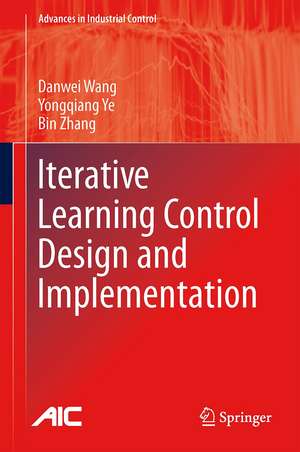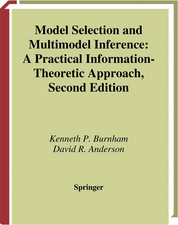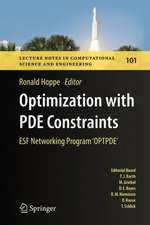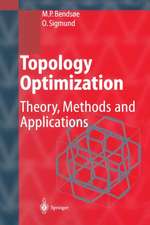Practical Iterative Learning Control with Frequency Domain Design and Sampled Data Implementation: Advances in Industrial Control
Autor Danwei Wang, Yongqiang Ye, Bin Zhangen Limba Engleză Hardback – 8 iul 2014
| Toate formatele și edițiile | Preț | Express |
|---|---|---|
| Paperback (1) | 642.65 lei 6-8 săpt. | |
| Springer Nature Singapore – 27 sep 2016 | 642.65 lei 6-8 săpt. | |
| Hardback (1) | 648.95 lei 6-8 săpt. | |
| Springer Nature Singapore – 8 iul 2014 | 648.95 lei 6-8 săpt. |
Din seria Advances in Industrial Control
- 15%
 Preț: 643.34 lei
Preț: 643.34 lei - 23%
 Preț: 582.63 lei
Preț: 582.63 lei - 18%
 Preț: 783.98 lei
Preț: 783.98 lei - 18%
 Preț: 947.35 lei
Preț: 947.35 lei - 20%
 Preț: 568.24 lei
Preț: 568.24 lei - 15%
 Preț: 643.16 lei
Preț: 643.16 lei - 18%
 Preț: 899.21 lei
Preț: 899.21 lei - 18%
 Preț: 891.33 lei
Preț: 891.33 lei - 18%
 Preț: 740.57 lei
Preț: 740.57 lei - 18%
 Preț: 961.23 lei
Preț: 961.23 lei - 18%
 Preț: 955.08 lei
Preț: 955.08 lei - 15%
 Preț: 645.28 lei
Preț: 645.28 lei - 15%
 Preț: 638.43 lei
Preț: 638.43 lei - 18%
 Preț: 901.11 lei
Preț: 901.11 lei - 18%
 Preț: 1410.94 lei
Preț: 1410.94 lei - 18%
 Preț: 728.91 lei
Preț: 728.91 lei - 20%
 Preț: 1003.77 lei
Preț: 1003.77 lei - 18%
 Preț: 947.35 lei
Preț: 947.35 lei - 15%
 Preț: 643.34 lei
Preț: 643.34 lei - 15%
 Preț: 654.30 lei
Preț: 654.30 lei - 18%
 Preț: 950.52 lei
Preț: 950.52 lei - 15%
 Preț: 644.30 lei
Preț: 644.30 lei - 18%
 Preț: 1393.09 lei
Preț: 1393.09 lei - 18%
 Preț: 950.21 lei
Preț: 950.21 lei - 18%
 Preț: 949.90 lei
Preț: 949.90 lei - 18%
 Preț: 949.42 lei
Preț: 949.42 lei - 18%
 Preț: 950.52 lei
Preț: 950.52 lei - 18%
 Preț: 1113.71 lei
Preț: 1113.71 lei - 15%
 Preț: 650.04 lei
Preț: 650.04 lei - 15%
 Preț: 644.95 lei
Preț: 644.95 lei - 18%
 Preț: 950.33 lei
Preț: 950.33 lei - 18%
 Preț: 948.61 lei
Preț: 948.61 lei - 18%
 Preț: 1112.60 lei
Preț: 1112.60 lei - 15%
 Preț: 644.63 lei
Preț: 644.63 lei - 18%
 Preț: 953.20 lei
Preț: 953.20 lei - 18%
 Preț: 945.62 lei
Preț: 945.62 lei - 15%
 Preț: 640.88 lei
Preț: 640.88 lei - 15%
 Preț: 640.88 lei
Preț: 640.88 lei - 20%
 Preț: 650.92 lei
Preț: 650.92 lei - 18%
 Preț: 1112.60 lei
Preț: 1112.60 lei - 20%
 Preț: 998.36 lei
Preț: 998.36 lei - 15%
 Preț: 643.34 lei
Preț: 643.34 lei - 18%
 Preț: 948.92 lei
Preț: 948.92 lei - 18%
 Preț: 1381.43 lei
Preț: 1381.43 lei - 15%
 Preț: 651.51 lei
Preț: 651.51 lei - 15%
 Preț: 647.08 lei
Preț: 647.08 lei - 20%
 Preț: 563.66 lei
Preț: 563.66 lei - 18%
 Preț: 998.03 lei
Preț: 998.03 lei - 18%
 Preț: 1225.79 lei
Preț: 1225.79 lei
Preț: 648.95 lei
Preț vechi: 811.19 lei
-20% Nou
Puncte Express: 973
Preț estimativ în valută:
124.19€ • 128.30$ • 103.36£
124.19€ • 128.30$ • 103.36£
Carte tipărită la comandă
Livrare economică 25 martie-08 aprilie
Preluare comenzi: 021 569.72.76
Specificații
ISBN-13: 9789814585590
ISBN-10: 9814585599
Pagini: 240
Ilustrații: XII, 226 p. 162 illus., 120 illus. in color.
Dimensiuni: 155 x 235 x 19 mm
Greutate: 0.51 kg
Ediția:2014
Editura: Springer Nature Singapore
Colecția Springer
Seria Advances in Industrial Control
Locul publicării:Singapore, Singapore
ISBN-10: 9814585599
Pagini: 240
Ilustrații: XII, 226 p. 162 illus., 120 illus. in color.
Dimensiuni: 155 x 235 x 19 mm
Greutate: 0.51 kg
Ediția:2014
Editura: Springer Nature Singapore
Colecția Springer
Seria Advances in Industrial Control
Locul publicării:Singapore, Singapore
Public țintă
ResearchCuprins
Introduction.- Extend Learnable Band and Multi-channel Configuration.- Learnable Bandwidth Extension by Auto-Tunings.- Reverse Time Filtering Based ILC.- Wavelet Transform based Frequency Tuning ILC.- Learning Transient Performance with Cutoff-Frequency Phase-In.- Downsampled ILC.- Cyclic Pseudo-Downsampled ILC.
Notă biografică
Dr. Danwei Wang received his Ph.D and MSE degrees from the University of Michigan, Ann Arbor in 1989 and 1984, respectively. He received his B.E degree from the South China University of Technology, China in 1982. Now, he is a professor in the School of Electrical and Electronic Engineering, Nanyang Technological University, Singapore. He served as head of Division of Control and Instrumentation from 2005 to 2011. He has served as general chairman, technical chairman and various positions in international conferences. He is an associate editor of International Journal of Humanoid Robotics and invited guest editor of various international journals. He was a recipient of Alexander von Humboldt fellowship, Germany. He has published widely in the areas of iterative learning control, repetitive control, fault diagnosis and failure prognosis, satellite formation dynamics and control, as well as manipulator/mobile robot dynamics, path planning, and control.
Dr. Yongqiang Ye received the B.E. and MEng degrees in electrical engineering from Zhejiang University, China, in 1994 and 1997, respectively, and the Ph.D. degree in electrical engineering from Nanyang Technological University, Singapore, in 2004. From 2006, he had been a Postdoctoral Research Fellow for 3 years in Canada with Lakehead University, Carleton University, and Dalhousie University, respectively. Since 2009, he has been a Professor with the College of Automation Engineering, Nanjing University of Aeronautics and Astronautics, Nanjing, China. He has authored or coauthored more than 24 international journal papers. His research interests include iterative learning control and repetitive control, power electronics control, and image processing. He is a senior member of IEEE.
Dr. Bin Zhang received the B.E. and M.E. degrees from Nanjing University of Science and Technology, Nanjing, China, in 1993 and 1999, respectively, both in Mechanical Engineering, and the Ph.D. degree in ElectricalEngineering from Nanyang Technological University, Singapore, in 2005. After his graduation, he joined the School of Electrical and Computer Engineering at Georgia Institute of Technology, Atlanta, GA as a post-doc research fellow. In 2009, he joined Impact Technologies, LLC, Rochester, NY as a senior project engineer and later lead engineer. Then, he joined the R&D of General Motors, Detroit, MI as a senior researcher in 2011. Since 2012, he has been an Assistant Professor in the Department of Electrical Engineering at the University of South Carolina, Columbia, SC. He has about 15 years experience in dynamics and control, intelligent systems, mechatronics, prognostics and health management. He has authored and co-authored more than 80 papers in areas of his expertise. He is currently an Associate Editor for IEEE Transactions on Industrial Electronics, International Journal of Fuzzy Logic and Intelligent Systems. He is a senior member of IEEE.
Dr. Yongqiang Ye received the B.E. and MEng degrees in electrical engineering from Zhejiang University, China, in 1994 and 1997, respectively, and the Ph.D. degree in electrical engineering from Nanyang Technological University, Singapore, in 2004. From 2006, he had been a Postdoctoral Research Fellow for 3 years in Canada with Lakehead University, Carleton University, and Dalhousie University, respectively. Since 2009, he has been a Professor with the College of Automation Engineering, Nanjing University of Aeronautics and Astronautics, Nanjing, China. He has authored or coauthored more than 24 international journal papers. His research interests include iterative learning control and repetitive control, power electronics control, and image processing. He is a senior member of IEEE.
Dr. Bin Zhang received the B.E. and M.E. degrees from Nanjing University of Science and Technology, Nanjing, China, in 1993 and 1999, respectively, both in Mechanical Engineering, and the Ph.D. degree in ElectricalEngineering from Nanyang Technological University, Singapore, in 2005. After his graduation, he joined the School of Electrical and Computer Engineering at Georgia Institute of Technology, Atlanta, GA as a post-doc research fellow. In 2009, he joined Impact Technologies, LLC, Rochester, NY as a senior project engineer and later lead engineer. Then, he joined the R&D of General Motors, Detroit, MI as a senior researcher in 2011. Since 2012, he has been an Assistant Professor in the Department of Electrical Engineering at the University of South Carolina, Columbia, SC. He has about 15 years experience in dynamics and control, intelligent systems, mechatronics, prognostics and health management. He has authored and co-authored more than 80 papers in areas of his expertise. He is currently an Associate Editor for IEEE Transactions on Industrial Electronics, International Journal of Fuzzy Logic and Intelligent Systems. He is a senior member of IEEE.
Textul de pe ultima copertă
This book is on the iterative learning control (ILC) with focus on the design and implementation. We approach the ILC design based on the frequency domain analysis and address the ILC implementation based on the sampled data methods. This is the first book of ILC from frequency domain and sampled data methodologies. The frequency domain design methods offer ILC users insights to the convergence performance which is of practical benefits. This book presents a comprehensive framework with various methodologies to ensure the learnable bandwidth in the ILC system to be set with a balance between learning performance and learning stability. The sampled data implementation ensures effective execution of ILC in practical dynamic systems. The presented sampled data ILC methods also ensure the balance of performance and stability of learning process. Furthermore, the presented theories and methodologies are tested with an ILC controlled robotic system. The experimental results show that the machines can work in much higher accuracy than a feedback control alone can offer. With the proposed ILC algorithms, it is possible that machines can work to their hardware design limits set by sensors and actuators. The target audience for this book includes scientists, engineers and practitioners involved in any systems with repetitive operations.
Caracteristici
First book of iterative learning control (ILC) from frequency domain and sampled data methodologies Summarizes the latest study of learning performance and learning stability Maximizes reader insights into the practical significance of ILC with verifications by experiments Written by foremost experts in the field
















